It looks like there’s not much left of Biden’s climate legislation as he heads to Glasgow planning to lecture China and the world. What should he be doing about the climate crisis? Bob Pollin joins Paul Jay on theAnalysis.news.
Paul Jay:
Hi, I’m Paul Jay. Welcome to theAnalysis.news, please don’t forget the donate button because if you don’t donate, we can’t do this. To everyone that already has donated a major thank you, your financial support and encouragement is greatly appreciated. Also, don’t forget to subscribe on YouTube and hit the email list on our website, and we’ll be back in just a second with Bob Pollin. We’re going to talk about the COP26 [the 26th session of the Conference of the Parties] meetings in Glasgow and where [Joe] Biden’s at with his “climate plan.” Back in a second. Last April, I interviewed economist Bob Pollin, and he broke down Biden’s American Jobs Plan and Climate strategy. I’ll repost that story on our website, but the gist was that the Biden infrastructure plan was woefully inadequate for dealing with the climate crisis. For example, only planning to retrofit 2 million homes in commercial buildings when it should be hundreds of millions. And an overall reliance on carbon capture as a strategy, something that so far seems more pie in the sky than reality. Still, that said, there were some measures that limit the use of fossil fuels and boost sustainable energy. In other words, it was better than nothing. Now, what’s left of that better than nothing? Well, the plan has not yet been settled or passed. Each day, the fossil fuel industry and their political allies in the Senate, who are themselves wealthy fossil fuel investors, are weakening the legislation. President Biden will go to the Glasgow COP26 meetings, not as the man who can lecture the world, especially China, on facing up to the climate crisis, but as a man who can’t or won’t fight his own fossil fuel industry at a time when the future of organized society is at stake. The climate-denying barbarians are at the gates and are getting louder. And the inability of corporate Democrats to legislate effective measures caught as they are between their Wall Street backers and promises to deal with climate and the needs of workers have put Biden, as we and others have said, between BlackRock and a hard place. Of course, it’s we ordinary humans who will reap the consequences. The rich think they are immune. Now, joining us again to talk about the COP26 meetings and the unravelling of Biden’s plan is Robert Pollin. Bob is co-founder of the PERI institute, the Political Economy Research Institute in Amherst, Massachusetts. He’s the author of a book he co-authored with Noam Chomsky titled Climate Crisis and the Global Green New Deal: the Political Economy of Saving the Planet. Thanks for joining us, Bob. Bob Pollin:
Very glad to be on. Thank you, Paul. Paul Jay:
So there’s a lot to dig into here, but let’s start with where we are at with these Glasgow meetings and saving the planet. It ain’t looking very good. Bob Pollin:
Yeah, it’s very depressing to think about in the U.S., specifically in the U.S., to think that we have these two senators, [Joe] Manchin and [Kyrsten] Sinema, that are blocking the enactment of, even what you and I have talked about, maybe minimally, barely adequate to get on a green transition path. Manchin, I read, I guess today or yesterday. He said, well, why should the government be subsidizing and giving money to companies to do things that they’re already doing? Meaning that there is already this transition taking place out of fossil fuels and into clean energy. Well, that’s not true. And the whole point is, of course, that if it is happening, it’s happening at a rate that is woefully inadequate relative to the magnitude of the crisis. So he just is spouting anything because what he really is saying is that I’m just not going to do this because I work for the fossil fuel companies. There was a leak of that interview with somebody from ExxonMobil, a lobbyist who said Joe Manchin is our point guy. He’s our leader in fighting these things, and that’s basically what he’s doing. And of course, if Biden goes to the meeting as he almost surely will with only a very weak mandate, it makes it much more difficult to argue that China should be advancing something more rigorous as it is. China has not even committed even in rhetoric to hitting the 2050 zero-emission target; they said they could do it by 2060. There are serious consequences to waiting until 2060 if we believe in climate science. So it’s a very discouraging moment. Maybe we can pull out of it. I’m not sure how. Paul Jay:
Yeah. Well, let’s get to that a little later on, but I agree. But it’s a little rich, after years of subsidization of the fossil fuel industry, that he’s talking about subsidizing sustainable energy. But that being said, where are we at on that? One of Biden’s major climate campaign promises was to cut subsidies to the fossil fuel industry. Has he? Bob Pollin:
As far as I know, it’s not even on the table. I haven’t heard. It’s certainly not in the Build Back Better Bill. And these are huge. The fossil fuel subsidies are in the tens to hundreds of billions if we add up all the sources of subsidy. And if you eliminate it altogether, all the subsidies, that alone could pay for the climate bill. Fossil fuel subsidies, in aggregate, could pay for at least the domestic portion of a climate bill. And again, we have this discussion about paying for the Build Back Better through tax increases on the rich. But why not pay for the bill— we can do some of that. But why not pay for it by eliminating all fossil fuel subsidies? That, of course, would be fully consistent with what Manchin is saying, “Why should the government be giving out these subsidies?” Okay, then why should they be giving out subsidies to fossil fuel companies? Paul Jay:
It was at the very heart of Biden’s election campaign on climate platform, eliminating fossil fuel subsidies. In fact, when you dug into the language of his election campaign platform, he linked it to the issue of China. That not only was he going to end fossil fuel subsidies in the United States, he was going to pressure countries that were getting involved in China’s Belt and Road initiative and give them an alternative form of financing; that would eliminate any subsidies for fossil fuel. In other words, the United States would find ways to help finance these countries’ energy transition and stop their subsidies for fossil fuel. Well, of course, he can’t do an inch of that when he can’t even do it at home. Bob Pollin:
That’s right. I mean, you could say, I guess Biden is obviously not fulfilling his campaign promises. But what it boils down to is that the Democratic Party isn’t strong enough to win enough votes to get beyond these people: Sinema and Manchin. In the House of Representatives, we have enough, and the Progressive Caucus is exercising real power. So you can see when you have, even if it’s a relatively small margin, they are using their power quite effectively. In the end, if we had one more vote in the Senate, no one would care what Joe Manchin thinks. Okay, maybe two more votes. Paul Jay:
Well, maybe there might be some others waiting in the wings if they have to. Yeah, they’re not the only— I love how they’re in the media. They call these people moderate democrats. Where the hell is the moderator? Bob Pollin:
No, they’re actually extremists because of exactly what Manchin said. Why should we subsidize these things that are already happening in terms of the transition to green energy? Putting aside the fact that we actually subsidized the fossil fuel industry massively, even the simplest right-wing Milton Friedman style economics will tell you that when you have so-called market failures. In this case, we have what one leading economist, Nicholas Stern, called the greatest market failure in world history, meaning that we are creating and we’re destroying the climate through allowing fossil fuels to be burned. So we have this market failure. And if you follow mainstream economics completely down the line, that means that if you punish, you have to incorporate these costs into our market calculations. So this is totally straight, mainstream, Orthodox, even right-wing economics that Manchin isn’t even reflecting that. Paul Jay:
Now one of the things I’ve said a couple of times and more than a couple of times in recent interviews that pisses me off most about Biden’s lack of plan. It’s that something you’ve worked on, some others, but you’ve been one of the key people—this issue of just transition and literally just paying fossil fuel workers. Give them a guarantee that you won’t lose a penny of your wages as we transition away from fossil fuels, which will help change the political dynamic of a whole bunch of states that are voting for Republicans. But to do that, it means you have to really want to take on the fossil fuel industry because that means you’re getting serious. But talk a little bit more about the economics of that. Bob Pollin:
So yeah, I’ve been doing work on this issue now for several years. I’ve published stuff. Nobody has really challenged it and said that it’s wrong. It isn’t wrong. In one paper, we look at not only the workers that are employed by oil companies, gas companies, but all the ancillary companies, such as distribution, even people working in gas stations. And we add all of them up, and then we say, okay, if under the just transition program, every single one of them, number one, you have a pension that is guaranteed. Number two, you’re guaranteed a new job. Number three, you’re guaranteed a new job, at least at the level of pay that you are now getting. And number four, to the extent you need it, you get retraining. And number five, you get relocation support, $75,000 for relocation support, for example, as needed. We add all of that up, and we do it for 2021, all the way to 2050, to get to zero emissions. And on average, the spending amount comes to $2 billion a year, which okay, it’s money. It’s $2 billion. But again, we’re talking about a $20 trillion economy. So this is less than one-one hundredth of 1% of GDP. This is nothing. This is to give an extremely generous package to every single person in any way working in the fossil fuel industry. Actually, in Biden’s plan, he has some rhetoric about this. It’s not fleshed out, but the words are there, but it certainly isn’t being advertised. It isn’t being fleshed out in the way I’ve developed it. If they were to say that, you know what, all of you workers, coal industry workers, oil and gas workers in West Virginia, you’re all going to get another job at your equal pay. Your pension is guaranteed. We are really, truly, truly going to take care of you. Okay. But you’ve got to agree to let this green transition happen, and then you’re going to be taken care of. You’re fine. You’re going to be totally fine. Paul Jay:
How does Joe Manchin oppose that? Looking at his own people, they’re going to all get subsidized and not lose a penny. Bob Pollin:
Well, I wrote a program for West Virginia, and I presented it to Manchin’s staff, and they were all nodding approvingly over Zoom like we’re talking now. I never met them face to face, but a couple of weeks after this happened, Manchin had a Press conference with, I believe, the head of the AFL-CIO [American Federation of Labor and Congress of Industrial Organizations] in West Virginia and the head of the coal miner workers. And he said effectively; I’m not going to get his words exactly right, he said, “We’ll go along with this, but there has to be this just transition.” So he’s aware of it. He’s aware of it. But in the end, I do a study. I talked to his staff, and then his friends in the coal industry called him up and said, “What the hell are you talking about, Joe?” And then he backs off. But if Biden, let’s say maybe it could still happen. This is a centrepiece. This is a centrepiece of our program. Every single worker in the fossil fuel industry and every ancillary industry is fully taken care of, fully taken care of; your communities are going to grow, they’re going to flourish. But you have to go along with this. The fossil fuel era is over. Let’s end it in a way that benefits you. That is the critical thing. And I’ve been saying this in various forums: when we talk about the COP conference, anytime we talk about Green New Deal, it has to include the just transition, not as the side thing that we mentioned at the very end in a paragraph or two. But it has to be front and center. Paul Jay:
It should be at the heart of even the most narrowest, partisan Democratic Party electoral strategy. Bob Pollin:
Absolutely. Paul Jay:
And just to put the cost just another way to look at the cost of this thing, I think they’re planning something like a dozen, they’re called Ford-class aircraft carriers, somewhere about 14 billion each and even the neocons are saying, it’s totally pointless because China and Russia have means now with smart missiles to knock out aircraft carriers quite easily. They’re actually ineffective weaponry, but they’re, of course, doing it because there’s this massive amount of money to be made. And let me just ask, and add to Manchin, he does not just have friends in the fossil coal industry. He is the part of the coal. He and his family are direct investors themselves. Bob Pollin:
He made half a million dollars last year. In my own research, I should mention that getting real deep into the details of the just transition really resulted way back in 2014, when I put out a very big study called Green Growth that we talked about when it came out. And it was true that my own analysis on this transition issue was, let’s say, superficial; it wasn’t very good. I hadn’t put a lot of time into it. And I was criticized by someone I respect a lot; it was a friend of mine who was then and is still now the chief economist at the AFL-CIO, Bill Spriggs. And he said, “Y’know Bob, you’re not going to get anywhere until you take this question seriously.” And he was right. And I spent the next year getting up to speed. And it’s not just that it’s me and not only me, certainly, but this needs to be as Bill Spriggs really emphasized to me at the time, this has to be at the center of what we talk about when we talk about any kind of green program. Paul Jay:
And it’s barely, at least in D.C., it’s barely talked about. And you’re right. It gets mentioned as an ancillary, to like, you talk about some climate objectives. The issue of what could Biden do, if he was serious, given the deadlock or gridlock and the roll of Manchin and all this. I mean, I’m no constitutional expert, but couldn’t he declare a national emergency and deal with this like it was a war and just bloody well do it? Of course, if Biden did it, he wouldn’t be Biden. And if the corporate Democrats did it, they wouldn’t be the corporate Democrats. But at least in theory, what’s stopping him from just saying, okay, this is an existential threat to America, and this is the equivalent of being threatened by war. And we’re just doing it, couldn’t he? And shouldn’t he? Bob Pollin:
I’m also not a constitutional expert, and I’m sure constitutional experts will differ as to the ability of the President to do that. But if you take his rhetoric, it’s almost as if he’s saying that, then it’s like, what does this translate into? I think if Biden were to say again and again and again instead of having to say, look, we have to cut a deal, to Senator Manchin, if he were to say, “We have to make this program happen.” And I understand Senator Manchin’s concerns, and therefore, we’re going to do this just transition so that every single person in West Virginia is going to be 25% better off than they were last year. And that’s part of the project of getting to a viable green transition program in the United States, which then can spill into the rest of the world. And in fact, that’s probably the easiest thing that they can do. Like I said, if it’s $2 billion a year or thereabout, that’s peanuts. I mean, if we’re talking about a program that’s going to be roughly in the range, in the investments in green energy 400 billion a year, which I think is what’s needed. So 2 billion is half of 1% of that. So what does it mean to say we need to be on a war footing? I think he could just as easily say, we are going to make sure that everybody gets a benefit from this program. That’s not hard to do. Paul Jay:
All right, so what do you say? And this is one of the critiques I’ve heard, that other workers who are not fossil fuel workers but are getting screwed or working for minimum wages are nowhere near what fossil fuel workers are getting paid. They’re going to say, “Well, why should these guys get looked after like this while we continue to get screwed?” Bob Pollin:
Well, that is a tough one because the fossil fuel workers, on average, are making over $100,000 a year. So they are well paid, relatively, they have better benefits, they have higher rates of unionization. But let’s keep in mind that wasn’t always the case. I mean, it wasn’t always the case that one thought of a coal miner’s job as a good job. It was because people struggled and built a Union, united mine workers that fought for high wages and better conditions, not good conditions, but better conditions. That’s where they are now. And I, therefore, completely understand that they’re fighting to retain what they created. It was a huge achievement in a very hostile environment. So what do we say to other workers? Well, we say to other workers, look, follow the example of what the coal miners achieved in the previous era. And let’s build up unionization and workers’ rights there. It should be the case that all workers have good unemployment benefits. They did briefly under the COVID stimulus program. And so that should set a standard against which we can improve overall unemployment benefits. Of course, if we run a full-employment economy effectively, the issue of unemployment benefits kind of disappears if we have something akin to a full-employment economy. If we improve unionization rates, workers can bid up wages at a low unemployment rate and high bargaining power. So that seems to me to be the approach that would maybe convince people in other industries that this is okay. Paul Jay:
The other thing might also be to subsidize the wages. And I don’t know if you’ve priced this out of workers in sustainable energy industries that apparently get paid less now than fossil fuel workers do. But if you raise those wages and then with a big expansion of the sustainable energy sector, there’ll be thousands and thousands of new jobs. And if they paid at that kind of rate, either they get unionized and or subsidized. Maybe that also deals with some of this. Bob Pollin:
Well, in the various studies I’ve done over the last year for different States, including West Virginia, including California, Ohio, Pennsylvania, Maine. Certainly, what we show over and over and over again, it’s easy to show that the green investment programs are going to create 20 to 30 times more jobs than the jobs that are going to get lost per year in the fossil fuel industry. Even in Pennsylvania, which has a high proportion of fossil fuel jobs and fracking and nuclear energy, but they do pay less. Let’s say they pay $60,000-$70,000 a year, and the people in fossil fuels are making $100,000, roughly speaking on average. So what we argue for is the huge expansion in these sectors creates an opportunity to unionize and to bargain up wages. And we do factor in the wage increases in these industries when I crossed out the overall impact of the green investment program. Paul Jay:
So when people are watching, and they say, okay, what do we do about it? The simple answer is to get organized. But maybe I can suggest putting some meat on the bones of getting organized. Like, for example, if you’re in a Union, fight that your Union takes a real position on this issue of just transition, of ending fossil fuel subsidies. And the unions do have some leverage with the Biden administration. And workers right now have more leverage than usual because there’s a lot of jobs going untaken right now. So to start organizing within their organizations, that the unions really have to take a position on this, and if they have the leadership of these unions that are simply unwilling to do this, then start organizing to take control of the Union or take control of your community group. It doesn’t matter where you are. If you’re in a wine club, get your wine club to take a position on these issues. Because— I’m going to release an interview soon with Jane McAlevey, who does a lot of Union organizing, and she distinguishes between advocacy and organizing. There’s a lot of advocacy going on about climate, but maybe not enough organizing so that people actually start taking over the organizations or joining organizations they can in order to really take a position on this issue because, obviously, the voice of the fossil fuel industry is far louder. And the other thing, too. And this is part of revitalizing the unions. And I know you’re quite connected to a lot of unions who lean on you for analysis. But so many of the leaderships of the Union are so distant from their own members and can barely talk to workers who are voting for Trump and don’t even really get the significance of Trump’s climate denialism and what that’s going to mean for their families and their kids. Getting organized means dealing with both the issues of contracts and the immediate economic consequences of people. And don’t treat workers like they are idiots. Workers can get the climate argument if they can get out of the silo, those who are in that silo of right-wing media. Bob Pollin:
Well, let me just cite as an example of the work I’ve done in California. In California, when we put out our study in June, it was endorsed by 20 unions. So I think that’s a first. It was endorsed, including by the fossil fuel or the Oil Refinery Workers Union. Paul Jay:
This is the just transition study. Bob Pollin:
The whole shebang, how California can get to zero emissions by their stipulated goal, which is 2045 and 50% cut by 2030. So we show how you get there in terms of the energy transition. We show the job impacts, and then we show the just transition for the workers in the industry. And then, we also focus on Kern County, California, which is where most of the fossil fuel jobs are disproportionately concentrated. So we do have great Union leadership and thinking about this very depressing week. What do I say when you say, okay, Manchin, Senator Manchin is sinking the whole thing at the federal level. And what do we do next? One answer is, let’s see what happens. California is 13% of the U.S. economy. If they can pass something significant in California, then it can be a model for other States, and we can gain momentum that way. It’s not ideal, but I think the Union leadership in California has been outstanding, and I really admire what they’re doing in terms of organizing, not just advocacy. They are organizing their workers, and they have the support of their membership as far as I know. And that is going to move the governor, and it’s going to set a standard, I think, for the rest of the country. Just as California up to now, the fact that they did have these emission reduction standards for cars has now set the standard for the whole country because they’re 15% of the market. So car companies can’t produce one set of cars for California and something else for the rest of the country. So by the same token, at least, I think we can see some significant movement in California led by the Union movement. Paul Jay:
Maybe New York. There’s a lot of progressives. Bob Pollin:
Yes, I was going to say we also did a study for New York. And to date, in New York, we’ve had a lot of great rhetoric from the state legislature and former Governor [Andrew] Cuomo that never amounted to anything. Well, it amounted to something, but something nowhere near what was needed. So yes, in New York as well, those would be two huge breakthroughs. And so whatever happens in the next week or two at the federal level, we should also keep focused on those two States and really push for something meaningful. And at least in the case of California, I know we have a very large segment of the Union movement that has taken leadership on this. Paul Jay:
So for people living really almost anywhere but especially California, New York, getting organized also means getting organized to really focus on what can be done at the state level. California, New York must be, I don’t know what is the percentage of the national GDP of those two States? Is it half the GDP? Bob Pollin:
It’s about a quarter. Yeah. Paul Jay:
To allow human civilization to tank because of rural America that produces very little in reality towards the GDP. If you take out fossil fuel from GDP, I don’t know how much of rural America’s contribution to the GDPs left. Do you know? Certainly, a lot of it is fossil fuel. Bob Pollin:
Well, let’s just say that they obviously are disproportionately represented, especially in the Senate, and that’s where we are. So we can say we got to get rid of that. It’s not going to happen in the next 18 months, so we have to do something else. And let’s keep pushing, obviously at the federal level, but in places like New York, California, Pennsylvania, if we can achieve a break, Pennsylvania is a little less likely at the moment, but California is ripe. So no matter what happens with the federal bill, if we can get something really strong and meaningful out of California, championed by the Union movement, that could be a huge breakthrough. Paul Jay:
Just before we end, let me just remind everybody you might want to add to it where we’re at right now. We’re at something like 1.2/1.3 degrees of warming above pre-industrial global averages. We really should be trying to get to one. The problem is, given the politics and the reality of the economy. Now, the big fight is can we even keep from passing 1.5 within ten to 15 years? And 1.5 has sort of gotten to sound like an acceptable number. But I should say, based on, I did a recent interview with the guy climate scientist who was co-author of Chapter 11 of the recent IPCC [Intergovernmental Panel on Climate Change] report, and 1.5 is serious. What we’re seeing now in terms of temperature warming, forest fires, droughts, flooding; it’s something akin to almost close to a doubling by 1.5, from where we are now. One point five to 2 is a whole other doubling. Two degrees to three is a quadrupling of what they call serious climate events. And there’s always the potential for something more cataclysmic that they can’t predict. For example, the oceans aren’t capable of absorbing the kind of carbon they are now. The urgency of this just isn’t getting through to people who aren’t already following all this stuff. I know if I talk to ordinary people about this stuff and when I say the sentence, I just said they say, “What really?” it’s crazy. So getting organized if you’re aware of this stuff means getting really clear on how to talk to people, your coworkers or your comembers of the wine club, whatever it is, your parents’ association. And if you’re not in something and you’re not that busy, join something and raise the level of these conversations because the general level of urgency just isn’t there. Bob Pollin:
Well, right. So my own model has always, I’m not a climate scientist. So basically, I’ve just gone from the so-called consensus IPCC models in terms of how to hit whatever they say, the target is, to avoid the most severe consequences. So my models have been based around hitting the 1.5 target and what it takes to hit the 1.5 degree stabilization target. And yes, I do know that people working within the IPCC, serious climate scientists, do say what you just said. Even 1.5 is raising— yeah, because we already are at 1.1/1.2, so every 10th of a percent of warming is generating more severe consequences. So some of it is unavoidable, and it’s going to happen. But if we can hit the stabilization path laid out by the IPCC, which is 50% cut by 2030 and zero by 2050, at least we would be at that 1.5 standard. If we can get lower, that, of course, would also entail some carbon removal technologies beyond stopping the burning of fossil fuels. And that’s the way to get there. But we first have to, as you say, we have to imbue into people’s consciousness how urgent this is. We can’t have these people like Manchin just talking utter nonsense and being called a moderate. He’s an insane person, or he’s like, ultra greedy and insane. And that’s the truth. Paul Jay:
That’s the truth. And part of this is so much a media problem that treats the whole Republican Party as if it’s kind of a normalized part of American politics; I guess because it is. But it means a criminal gang of climate deniers are normal. And I guess that’s what it is. All right. Thanks very much, Bob. Bob Pollin:
Okay, great talking to you. Paul Jay:
And thank you for joining us on theanalysis.news. Again, please, we can’t do this without your financial support. And thanks to everyone that has supported us and subscribed and signed up. All of the buttons. Thanks very much.
Podcast: Play in new window | Download | Embed
Subscribe Apple Podcasts | Spotify | Android | iHeartRadio | Blubrry | TuneIn | Deezer | RSS
Never miss another story
Subscribe to theAnalysis.news – Newsletter

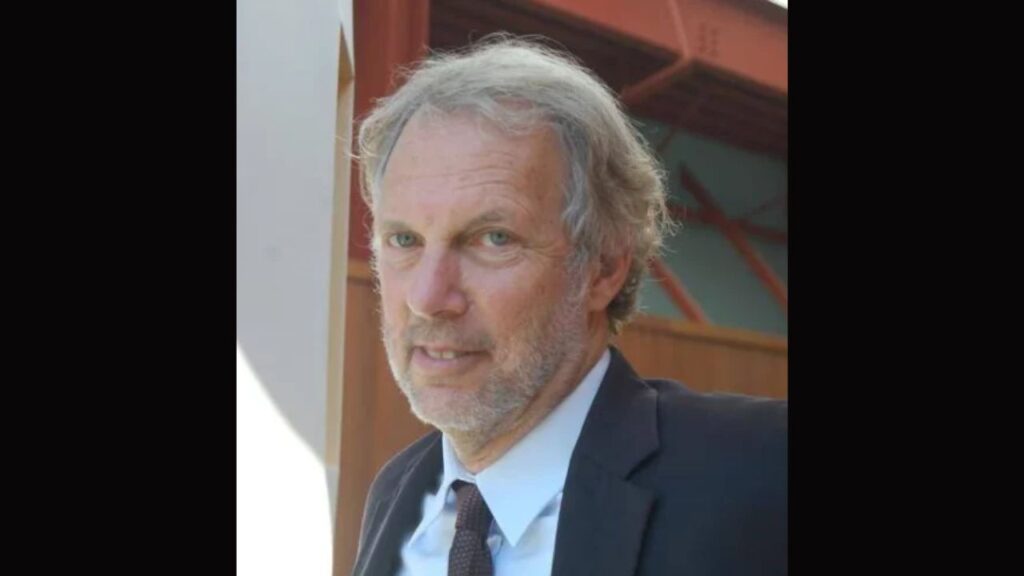




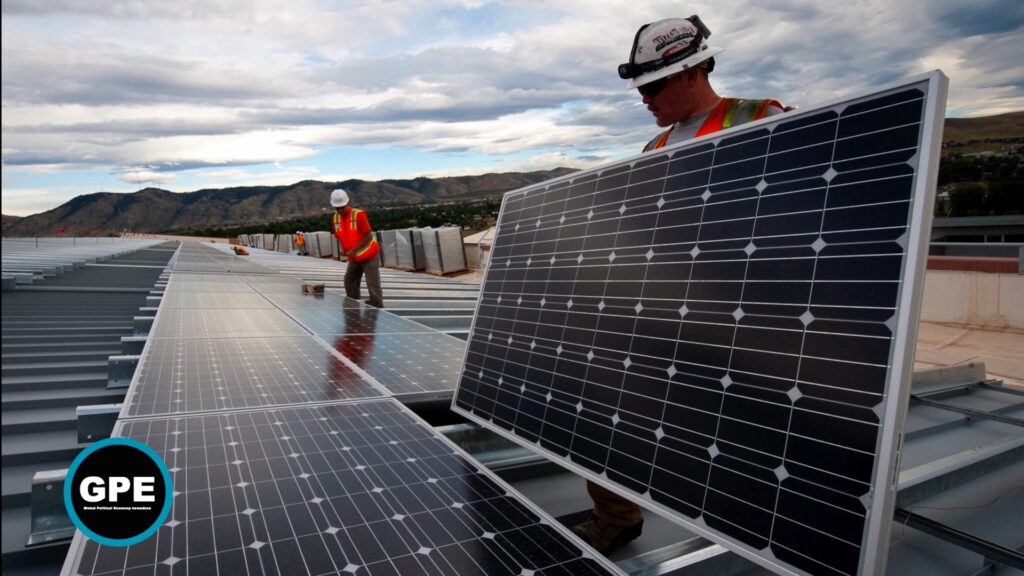
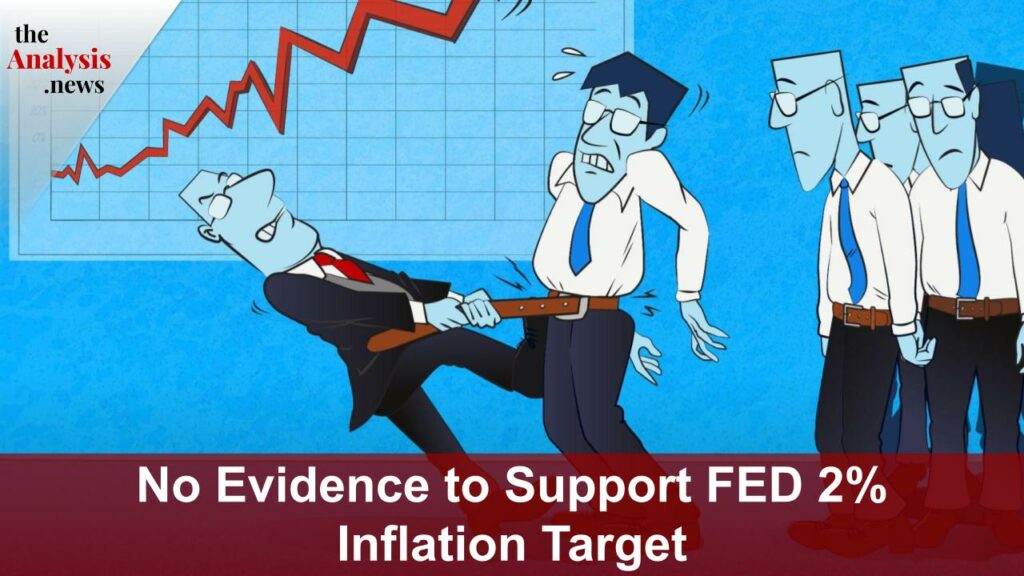
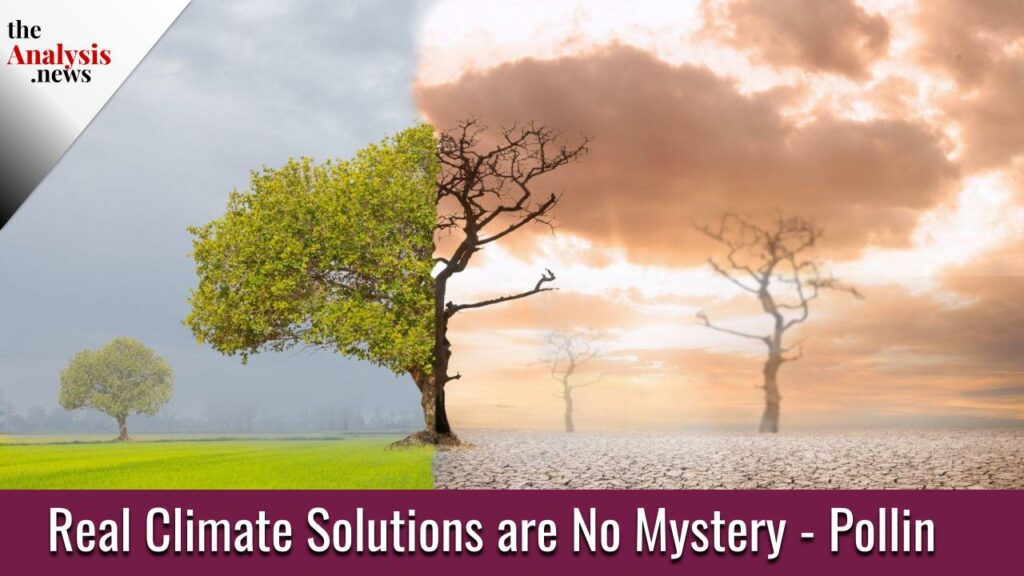
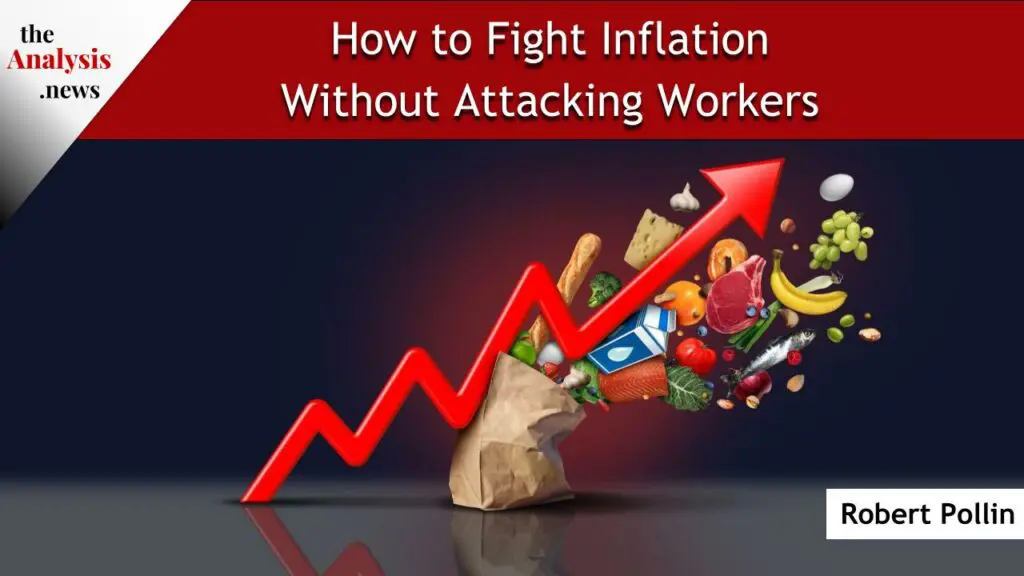
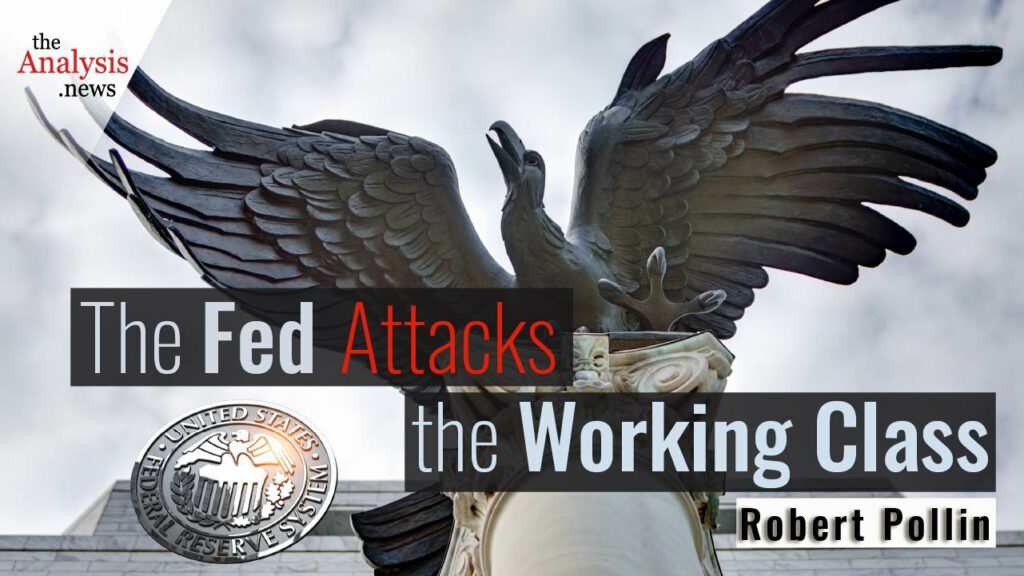
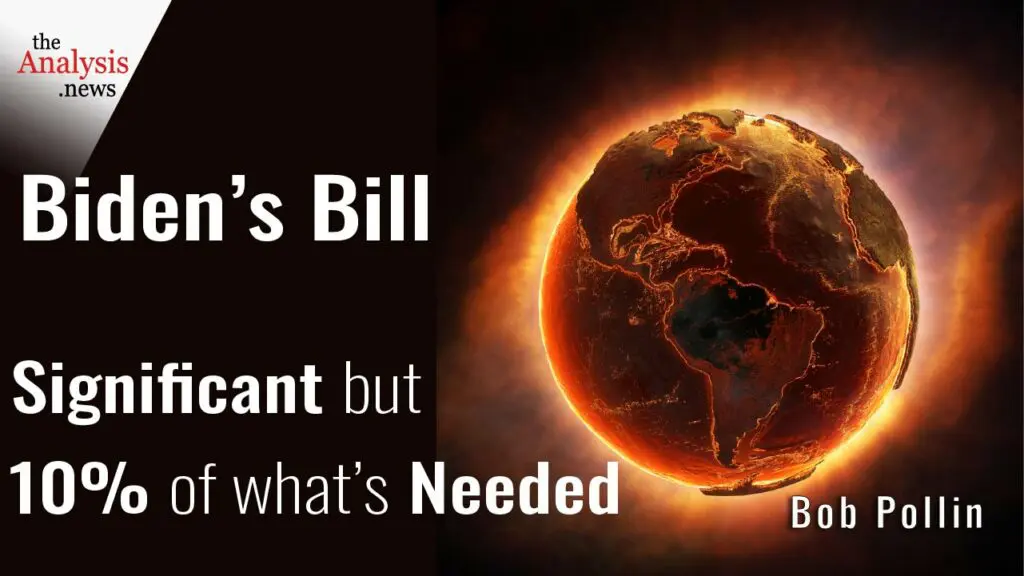
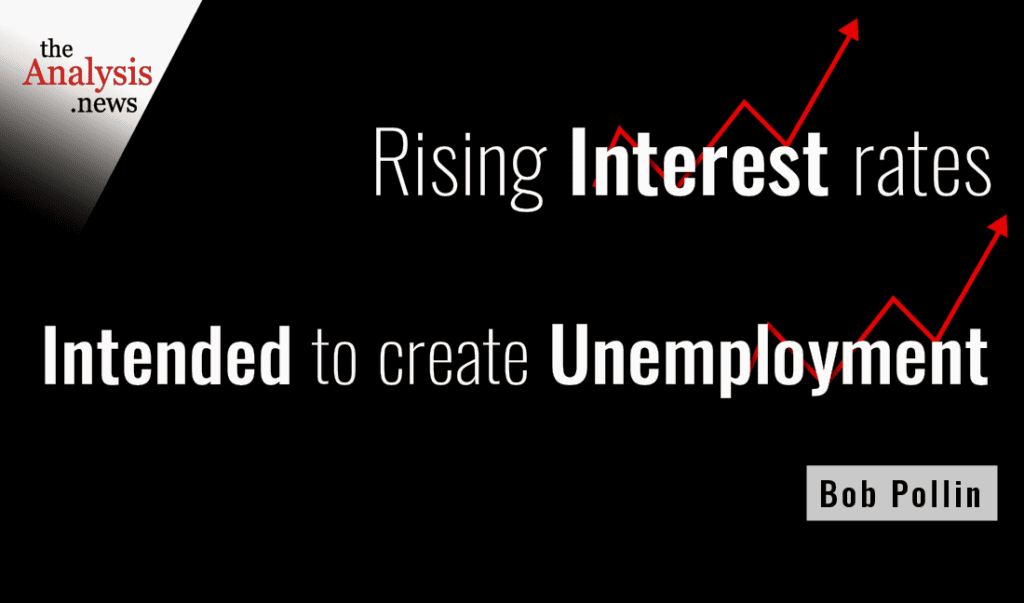
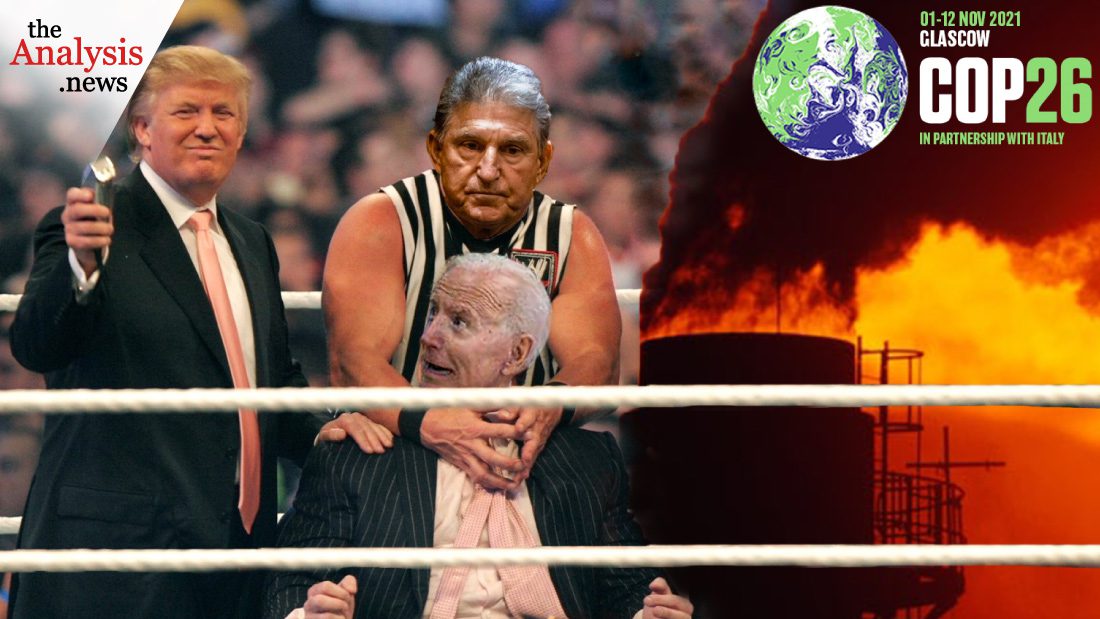
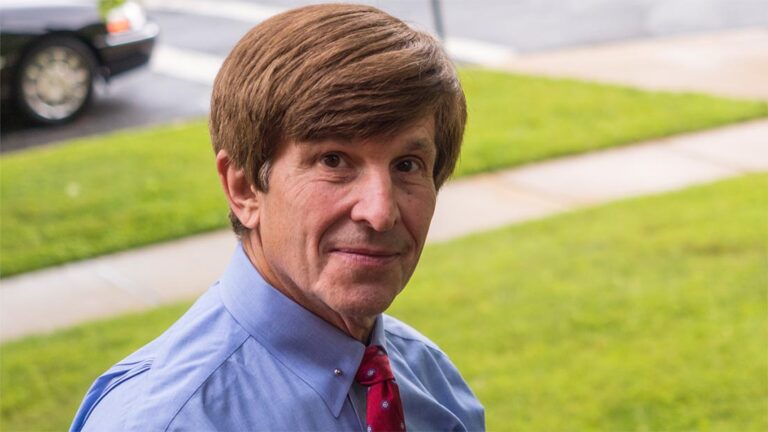
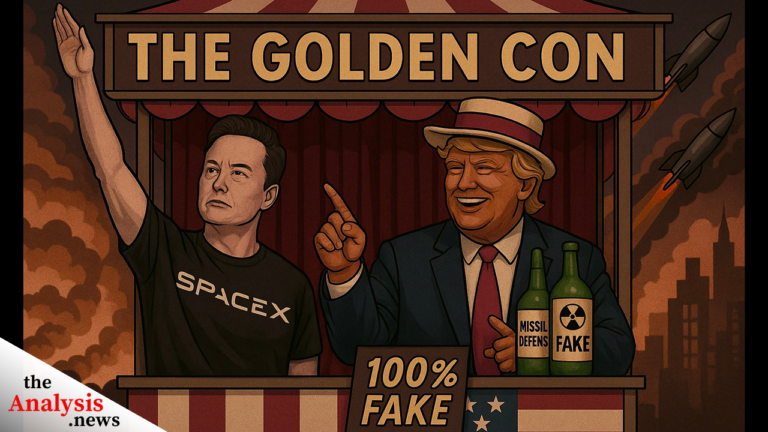
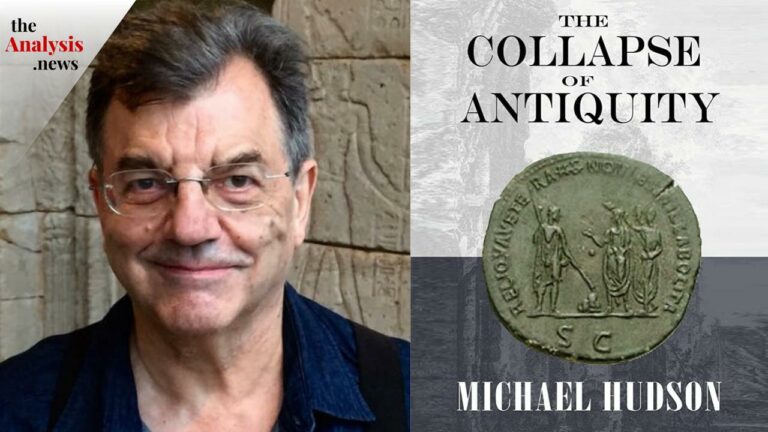
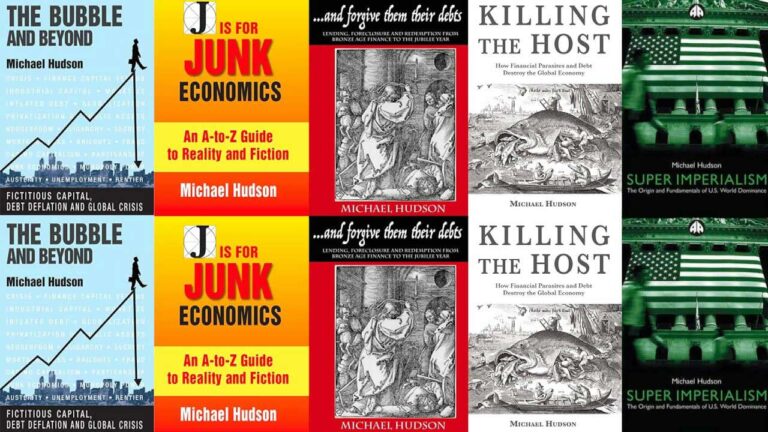


Biden is a victim of his own history combined with his senility, if he is geniuine. However I doubt this is more that Joe trying to please everyone while still keeping his back door puckered for the friends who’ll grease his families rise (and after Joe dies, it’s collapse). After all, Joe picked a fight with Xi and Putin, so they are not going to show up to his three card monty just so that he can claim credit for the fake progress on USA part an glom off their efforts. Putin and Xi both have made hard commitments, which means something solid, to more than Joe can possibly deliver regardless, due to his own familial corruption, even if old pal of Joe and coal mining magnate Senator Manchin were to have a heart attack tomorrow.
Excellent! I will send this to my son. It may not do any good. He thinks going off fossil fuel will ruin the economy. What can I say….?